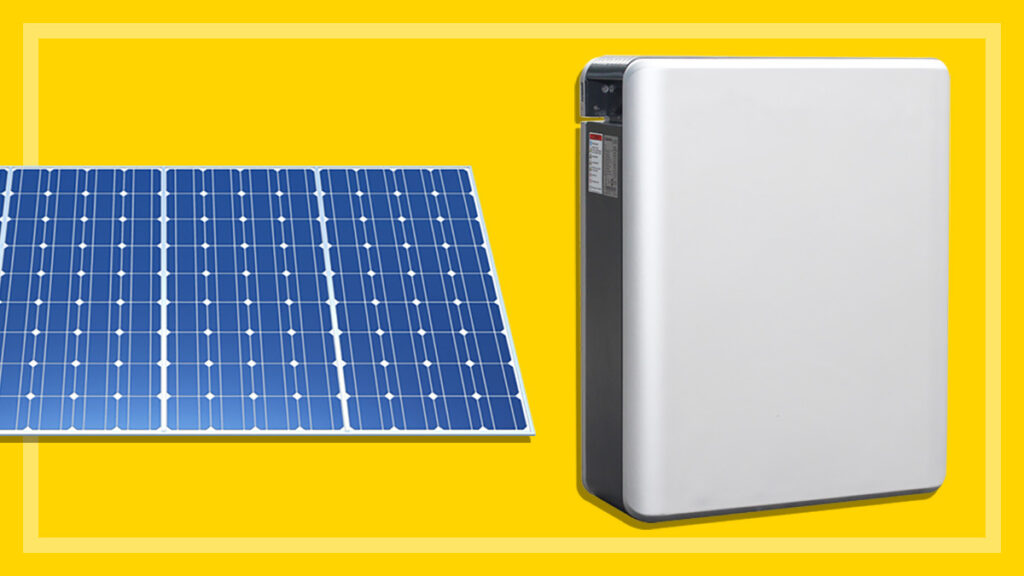The choice of battery for solar systems depends on various factors, including the specific requirements of the solar installation, the energy storage needs, and considerations related to cost, lifespan, and maintenance. Two common types of batteries used in solar systems are lead-acid batteries and lithium-ion batteries.
- Lead-Acid Batteries:
- Flooded Lead-Acid (FLA): Traditional and economical option.
- Valve-Regulated Lead-Acid (VRLA): Sealed maintenance-free option, includes Absorbent Glass Mat (AGM) and Gel batteries.
- Initial cost is lower than lithium-ion batteries.
- Well-established and widely used technology.
- Suitable for certain off-grid and backup applications.
- Shorter cycle life compared to lithium-ion.
- Limited depth of discharge (DoD) to maintain lifespan.
- Require regular maintenance (for flooded lead-acid).
- Lithium-Ion Batteries:
- Includes various chemistries such as Lithium Iron Phosphate (LiFePO4), Lithium Nickel Manganese Cobalt Oxide (NMC), and others.
- Longer cycle life, generally offering more charge/discharge cycles.
- Higher depth of discharge without impacting lifespan.
- Lightweight, compact, and generally more energy-dense.
- Lower self-discharge rates.
- Higher upfront cost compared to lead-acid batteries.
- Newer technology compared to lead-acid.
Considerations for Choosing:
- Cycle Life: If the solar system requires frequent charge and discharge cycles, lithium-ion batteries may be more cost-effective over the long term due to their longer cycle life.
- Depth of Discharge (DoD): Lithium-ion batteries often have a higher usable capacity at deeper discharge levels, making them suitable for applications with varying energy needs.
- Space and Weight: If space and weight are critical factors, lithium-ion batteries are generally more compact and lighter than lead-acid batteries.
- Cost: Lead-acid batteries have a lower upfront cost, but lithium-ion batteries may offer better cost efficiency over their lifespan, especially in high-cycle applications.
- Maintenance: Lead-acid batteries, especially flooded types, may require more maintenance compared to sealed lithium-ion batteries.
- Application: Consider the specific requirements of the solar system, whether it’s for off-grid power, backup power, or other applications.
It’s essential to carefully evaluate these factors and consult with solar system professionals to determine the most suitable battery solution for a particular solar installation. Additionally, staying informed about advancements in battery technology is important as the field continues to evolve.


